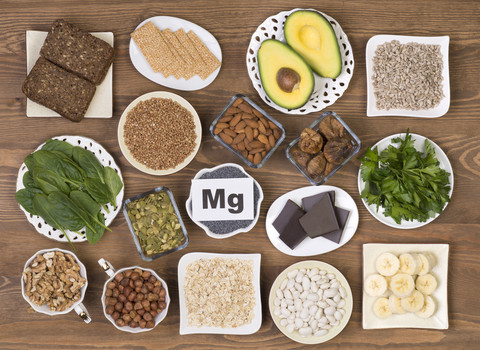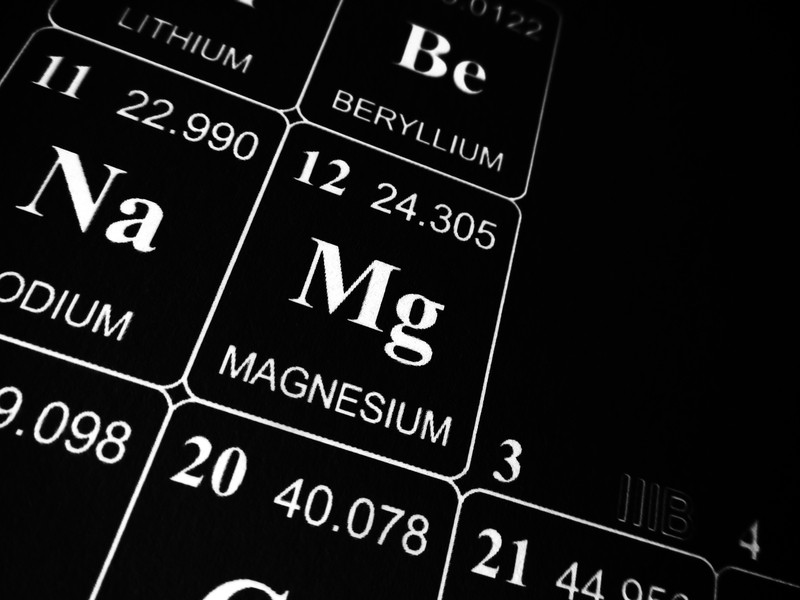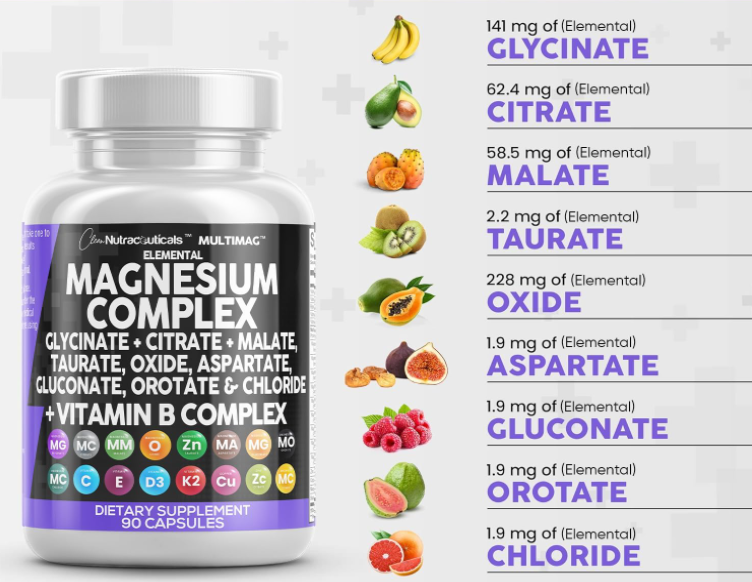Health, Nutrition
Welcome and thanks for visiting...

The Vital Role of Magnesium: Why You Should Consider a Supplement

Magnesium is an essential mineral that our bodies cannot function without. It is one of the most well-researched nutrients, offering a clear understanding of its numerous benefits. Magnesium is crucial in supporting muscle and nerve function, energy production, and overall health. Despite its importance, many people are unaware of the consequences of magnesium deficiency and the benefits of supplementation. In this blog, we'll explore why magnesium is vital, how it works, and what to look for in a high-quality magnesium supplement.
Why Take Magnesium?
Magnesium is indispensable for over 300 biochemical reactions in the body. It aids in protein synthesis, muscle and nerve function, blood glucose control, and blood pressure regulation. Although low magnesium levels may not cause immediate symptoms, chronic deficiency can lead to severe health issues such as high blood pressure, heart disease, type 2 diabetes, and osteoporosis.
A high-quality magnesium supplement can help replenish and balance your magnesium levels, resulting in increased energy, reduced stress, improved immunity, and a defense against migraines and other health conditions.
How Does Magnesium Work?
Magnesium is crucial for various bodily functions, including energy production, muscle contraction, and nerve signal transmission. The mineral comes in different forms, but three main types are most beneficial and bioavailable: Magnesium Citrate, Magnesium Glycinate, and Magnesium Malate. These forms are the hallmarks of a superior magnesium supplement.
Benefits of High-Quality Magnesium Supplements
Opting for a high-quality magnesium supplement can be an effective and affordable way to enhance your physical and mental well-being. Here are some benefits you can expect:
Boosts Energy Levels
Many people experience fatigue due to magnesium deficiency. Symptoms like weakness, sleepiness, and loss of appetite can be alleviated with proper magnesium intake, which helps regulate energy production efficiently.
Reduces Stress and Anxiety
Magnesium has a significant impact on stress levels. Adequate magnesium levels can help you feel more relaxed, clear-minded, and less anxious, leading to overall improved mental and physical health.
Improves Heart Health
Studies have shown that magnesium can lower blood pressure and protect against various cardiac issues. High magnesium levels can reduce the risk of type 2 diabetes by up to 35%.
Eases Migraines
Magnesium can help reduce the frequency and severity of migraines. Migraine sufferers typically have lower magnesium levels in soft tissues than those who do not experience migraines.

Which Types of Magnesium Are Effective?
Not all magnesium supplements are created equal. The most effective forms for health benefits are Magnesium Citrate, Glycinate, and Malate. These forms are easily absorbed by the body, leading to more noticeable improvements.
Magnesium Citrate
This form helps relieve constipation, uneasy gut, and cramps by gently loosening the intestines.
Magnesium Glycinate
Known for reducing anxiety and stress, promoting healthier bones, and regulating blood sugar levels, this form helps lower the risk of type 2 diabetes and other chronic conditions.
Magnesium Malate
This form enhances the absorption of magnesium and other nutrients, reducing migraine frequency and improving bowel movements.
Top Foods Rich in Magnesium and Their Health Benefits

Dark Chocolate
Magnesium Content: 65 mg in 1 oz (28 g) serving (15% DV)
Benefits: Rich in iron, copper, manganese, prebiotic fiber, and antioxidants. It benefits heart health due to flavanols that prevent LDL cholesterol oxidation.
Best Choice: Products with at least 70% cocoa solids.
Avocados
Magnesium Content: 58 mg in one medium avocado (14% DV)
Benefits: High in potassium, B vitamins, vitamin K, heart-healthy monounsaturated fat, and fiber. It helps reduce inflammation, improve cholesterol levels, and increase satiety.
Nuts
Magnesium Content: 83 mg in 1 oz (28 g) of cashews (20% DV)
Benefits: High in fiber, monounsaturated fat, and selenium (especially Brazil nuts). Improve blood sugar and cholesterol levels, reduce inflammation, and curb appetite.
Legumes
Magnesium Content: 120 mg in 1 cup (172 g) of cooked black beans (29% DV)
Benefits: High in potassium, iron, and protein. It helps lower cholesterol levels, improve blood sugar control, and reduce heart disease risk.
Tofu
Magnesium Content: 35 mg in 3.5 oz (100 g) serving (8% DV)
Benefits: High in protein, calcium, iron, manganese, and selenium. It may protect artery lining cells and reduce stomach cancer risk.
Seeds
Magnesium Content: 168 mg in 1 oz (28 g) of pumpkin seeds (40% DV)
Benefits: High in iron, monounsaturated fat, omega-3 fatty acids, and fiber. Contains antioxidants and may lower cholesterol levels and breast cancer risk.
Fatty Fish
Magnesium Content: 30 mg in 3.5 oz (100 g) of cooked salmon (7% DV)
Benefits: High in high-quality protein, potassium, selenium, and B vitamins. Linked to a reduced risk of chronic conditions, including heart disease.
Bananas
Magnesium Content: 37 mg in one large banana (9% DV)
Benefits: High in potassium, vitamin C, vitamin B6, manganese, and fiber. It may help lower blood pressure and improve gut health with resistant starch.
Leafy Greens
Magnesium Content: 158 mg in 1 cup (180 g) of cooked spinach (37% DV)
Benefits: High in iron, manganese, and vitamins A, C, and K. Contain beneficial plant compounds that protect cells and may reduce cancer risk.
Choosing the Best Magnesium-Rich Foods
Incorporating these magnesium-rich foods into your diet can help ensure you receive adequate amounts of this essential mineral, supporting various bodily functions and overall health. Whether you enjoy dark chocolate or add more leafy greens to your meals, these foods offer delicious and nutritious ways to boost your magnesium intake.
What to Look For in a Magnesium Supplement
When choosing a magnesium supplement, it's essential to ensure it meets the following criteria to experience the full range of benefits:
- Includes Magnesium Citrate, Glycinate, and Malate: These three forms are the most effective and bioavailable, supported by extensive research showing their ability to boost energy, mood, and overall health.
- Optimal Dosage: A total dose of 200-225mg minimum of magnesium per day is recommended for optimal effects and minimal side effects.
- Includes Zinc: Zinc enhances magnesium absorption, allowing your body to utilize the mineral more effectively.
Magnesium is a vital mineral that supports numerous bodily functions and overall health. You can significantly improve your physical and mental well-being by choosing a high-quality supplement containing Magnesium Citrate, Glycinate, and Malate and ensuring the correct dosage. Don't overlook the importance of magnesium – it could be the key to a healthier, more energized life.










